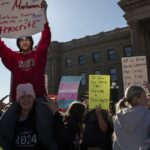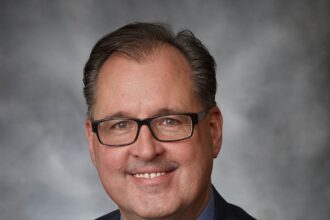In a decisive move to strengthen Indigenous cultural preservation and leadership development, Secretary of State Stephanie McLean announced today a significant funding package for Indigenous-led programs in Victoria. The initiative marks a pivotal moment in Canada’s ongoing commitment to reconciliation and cultural revitalization efforts across British Columbia.
“This investment isn’t merely financial—it represents a concrete step toward honoring our commitments to Indigenous communities,” McLean declared during this morning’s press conference at the Victoria Native Friendship Centre. “By supporting culturally-grounded leadership programs, we’re investing in the next generation of Indigenous leaders who will guide their communities toward self-determination.”
The funding, reportedly exceeding $3.2 million over three years, will support several key initiatives including the Indigenous Youth Leadership Academy, cultural knowledge preservation projects, and entrepreneurship training specifically designed for Indigenous business development. These programs aim to bridge traditional knowledge with contemporary leadership skills, creating pathways for Indigenous youth to excel while maintaining strong connections to their heritage.
Chief Robert Williams of the Songhees Nation praised the announcement while emphasizing its practical implications. “For generations, our knowledge systems and leadership traditions were systematically undermined. This support creates space for us to revitalize these practices and adapt them for today’s challenges,” he noted. “But the work of reconciliation requires sustained commitment, not just periodic funding announcements.”
The Victoria initiative comes amid growing recognition of the economic and social benefits of Indigenous leadership development. A recent study from the CO24 Business section revealed that Indigenous-led businesses contribute over $30 billion annually to the Canadian economy, despite historical barriers to capital and opportunity.
Victoria Mayor Marianne Alto, present at the announcement, committed to enhancing municipal cooperation with the programs. “Our city stands to benefit enormously from stronger Indigenous leadership presence. This isn’t just about addressing historical wrongs—it’s about creating a more vibrant, inclusive economic future for everyone in our region.”
The funding package includes provisions for measuring outcomes, with program effectiveness assessments scheduled quarterly. This data-driven approach marks a departure from previous government initiatives that often lacked robust accountability measures, according to political analysts at CO24 Politics.
Indigenous program directors will maintain administrative control over the initiatives, addressing longstanding concerns about government overreach in Indigenous affairs. Laura Voyageur, executive director of the Victoria Indigenous Leadership Collective, explained: “What makes this different is that decision-making power remains with Indigenous leaders and elders. The government is providing resources without dictating program structure—that’s the model of respectful partnership we need.”
Critics, however, question whether the funding is sufficient to address decades of systemic underfunding. Parliamentary budget analysis indicates that similar initiatives would require approximately $5.7 million to achieve comparable impact in other major urban centers across Canada.
As Canada continues navigating the complex path of reconciliation, this Victoria initiative may serve as a template for Indigenous leadership development nationwide. The question remains: will this investment represent a genuine turning point in Canada’s relationship with Indigenous peoples, or will it join a long history of well-intentioned but ultimately insufficient gestures toward meaningful change?










